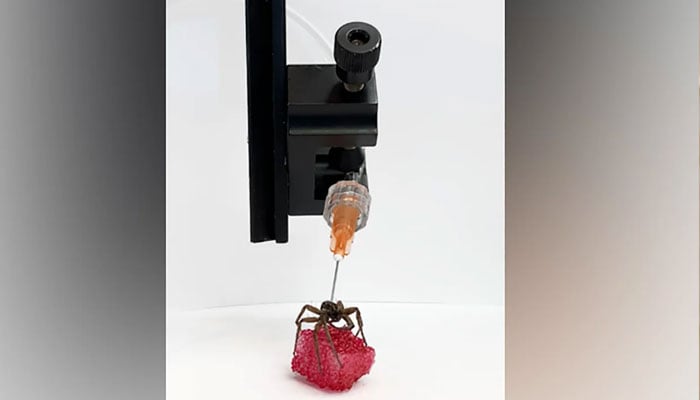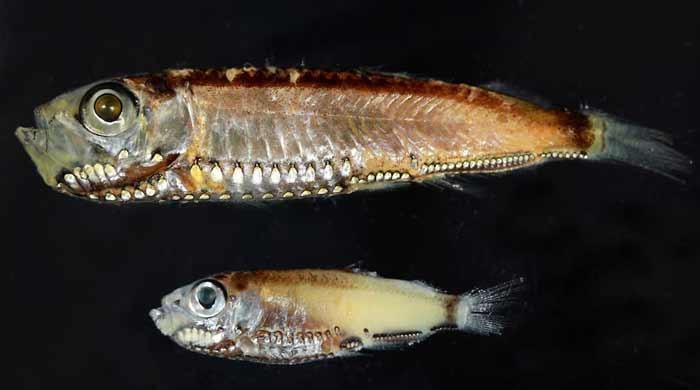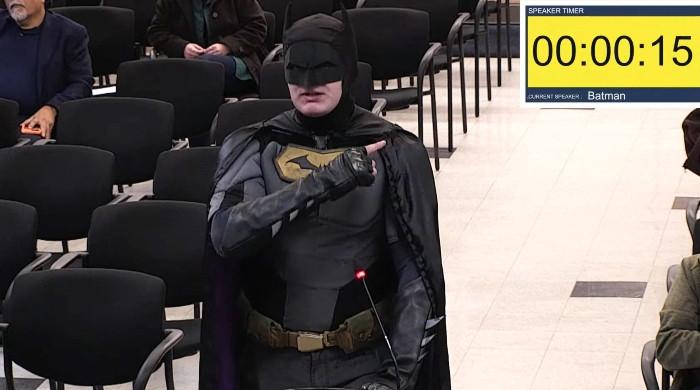Ig Nobel Prize 2023: Electrocuted food, nose hairs, anal print among top winners
Education Prize was for research into how teachers' boredom affects students in classroom
September 15, 2023

The winners of this year's Ig Nobel Prizes, which celebrate the unusual and aim to spark interest in science, medicine, and technology, covered a range of quirky topics including the number of nostril hair, dead spiders and licking of rocks.
The 33rd Ig Nobel Prize ceremony, held virtually, featured Nobel laureates awarding prizes to researchers from 22 countries, including the United States, the United Kingdom, and China.
Why do scientists lick rocks?
Geologist Jan Zalasiewicz received the Chemistry and Geology Prize for his investigation into why scientists like to lick rocks. He demonstrated this by licking a 400 million-year-old trilobite, explaining that it helps identify the rock's type when wet.
No deja but "jamais vu"
The Literature Prize went to researchers who explored the concept of "jamais vu," the feeling of finding a familiar thing unfamiliar when repeated in language. They discovered that about two-thirds of people felt "peculiar" after repeating the same word around 30 times.
Using dead spiders
A team from Rice University won the Mechanical Engineering Prize for reanimating dead spiders to use as mechanical gripping tools, capable of grasping objects up to 130% of their weight.
Number of nostril hair
The Medicine Prize was awarded for research into the number of nose hairs in each nostril. The team found that the average person has around 120 nose hairs in their left nostril and 112 in their right. This study will help investigate how alopecia, a condition causing hair loss, affects the immune systems of individuals due to a lack of nose hairs.
Backward brain activity
The Ig Nobel Communication Prize recognized research into brain activity when a person speaks backwards.
Anal printing is in
The Public Health Prize went to urologist Seung-min Park, who invented the Stanford Toilet, which identifies users by their "analprint."
Electrocuted food
Japanese scientists Homei Miyashita and Hiromi Nakamura received the Nutrition Prize for their study on how electrification affects food taste, finding it increased users' perception of saltiness.
Don't look up
Psychologists Stanley Milgram, Leonard Bickman, and Lawrence Berkowitz were awarded the Psychology Prize for studying why members of a crowd look up when they see others doing so.
Boredom in classroom
The Education Prize was for research into how teachers' boredom affects students in a classroom.
Effects of sex on oceans
Lastly, the Physics Prize recognized a team's investigation into how the sexual activity of anchovies impacts ocean-water mixing and the global circulation of ocean currents.
The ceremony featured mini-non-opera songs about water and an annual paper plane-throwing event. The researchers will have the opportunity to meet at a companion Ig Nobel Face-to-Face event in Cambridge, Massachusetts, in November, where more songs and paper planes are expected.











